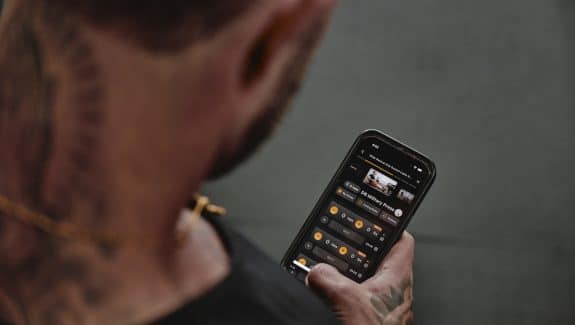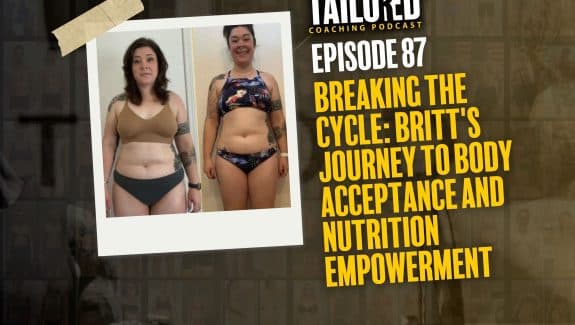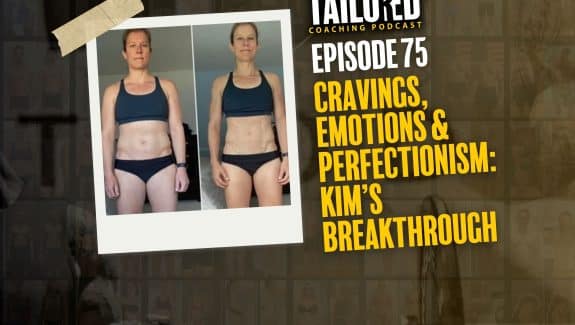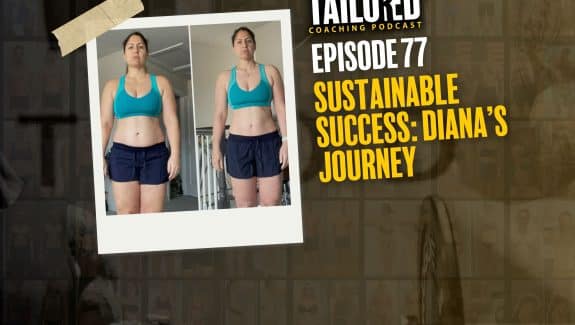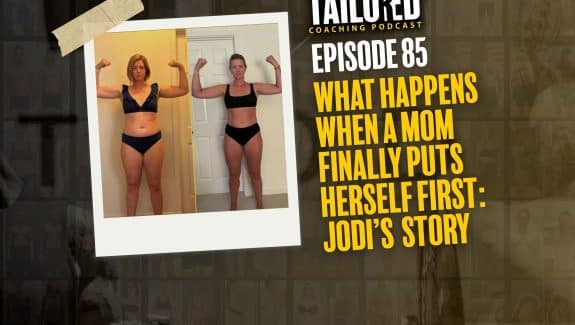Intermittent fasting, time restricted eating, carb fasts, water fasts, 24 hour fasts, multi-day fasts… There is so much talk about fasting these days it’s hard to keep up!
We’re going to break down some of the benefits and risks of a few different types of “fasts” to help you sort through all the information available today.
First things first, what is a fast?
Fast (verb):
To abstain from all or some kinds of food or drink, especially as a religious observance.
That definition allows for various different types of fasting for various reasons. For example, some people may fast for 16 hours or for three days. You could do a water only fast or incorporate fruits and juices. Some might do a fast for general health benefits or fat loss, while others fast for religious purposes.
Let’s dive into the details of a few of the most common types of fasts today.
→ Calorie Restriction:
Chronic reduction of calories below “maintenance” level
→ Intermittent Fasting (IF):
Abstaining from food periodically. This is a very broad term that could refer to alternate day fasting or fasting one day each week. In my experience when people say “IF” they should actually be using the term Time Restricted Eating.
→ Time Restricted Eating:
Eating all of your meals within a specific time frame of the day and abstaining from food consumption the rest of the day. Most commonly, fasting for 16 hours (overnight and in the morning) and eating for 8 hours. Time restricted eating can be practiced one or more days per week, depending on how your body responds.
→ Prolonged Fasting:
Fasting that is not intermittent and does not have to be done in any sort of cycle, but is done for at least 48 hours or longer. Typically, when people mention prolonged fasting they are speaking of a 3-5 day fast, consuming zero calories. Prolonged fasts should be done less frequently, one to four times per year.
Now that we’ve got the definitions out of the way, there’s the question of why? Why is fasting so popular and why should you fast (or not fast)?
Why Fast?
Many years ago humans did not always have food available and frequently encountered periods of famine. There would commonly be periods of fasting lasting for more than a few days between hunting and gathering. This is in stark contrast to today, where we have an abundance of food available and it’s rare to go more than a few hours without eating something.
Animal studies have shown chronic calorie restriction to improve lifespan by 40% as well as eliminating or reducing disease. Now, most of us don’t want to live with constant food restriction, so how would we reap similar benefits? Dr. Valter Longo specializes in researching periodic prolonged fasts, where we attempt to get the health benefits without constant deprivation. Dr. Longo’s research has shown that effects from a 3-5 day fast including blood pressure, metabolism, insulin sensitivity, and inflammation improvements can persist for up to six months after the fast.
Fasting has also been linked to promoting death of damaged cells (autophagy) and also cell regeneration. Animal studies by Dr. Longo and one small human trial have shown prolonged fasting (2-4 days abstaining from food) to reboot the immune system and rid the body of damaged cells.
And of course there is the benefit of weight loss. When the body has used up its glycogen stores, it will begin using fat for energy, which is when we would see fat loss. This is also the time when the body may start to “recycle” cells that are damaged in order to be more efficient. Keep in mind when you return to eating your normal caloric intake you will most likely gain the weight right back. Periodic fasts are probably not a good option if you have any sort of binge and restrict tendencies or unresolved disordered eating habits.
The benefits of cell health and boosted immunity make the idea of not eating sound a bit more appealing… But there are also some risks to be aware of.
Risks of Fasting
Since you are not taking in any fluids from foods during your fast, dehydration can become an issue. If you are doing any sort of fast, make sure you are staying hydrated by consuming adequate liquids. Also make sure to add a pinch of salt to your water throughout the day to maintain electrolyte balance.
Another negative of fasting is hunger, of course. The good news is that hunger comes in waves so if you can remain present/mindful and learn how to accept the hunger pangs now and again, they will pass.
Always talk with your healthcare professional before attempting any sort of fasting protocol.
I have done a few 24 hour fasts over the past several months and liked the way I felt afterwards. My research and experimenting with fasting also led me to develop a major girl crush on Dr. Rhonda Patrick. In a recent podcast, she and Dr. Longo discussed prolonged fasting and it piqued my interest, leading me to embark on a prolonged three day fast!
One common question I needed to address before starting my prolonged fast is, does consuming coffee/vitamins/supplements break a fast?
What Breaks a Fast?
There is still debate in the medical community over what exactly can break your fast, which also depends on how strict/defined your fast is. Some scientists, like Dr. Satchin Panda, state that consumption of anything other than water, including coffee, will have an impact on your body which we should interpret as breaking a fast.
On the other hand, we know drinking black coffee won’t trigger an insulin or glucose response and may actually boost autophagy. Dr. Guido Kroemer, who is an expert on autophagy, published a study a few years ago where the specific polyphenols in coffee (decaf or caffeinated) triggered, and actually increased, autophagy. That’s enough evidence for me to keep coffee in my fast 🙂
A good rule of thumb that I used during my fast is anything that contains a significant amount of macronutrients (or calories) will break a fast. For me this meant abstaining from BCAAs/EAAs, fish oil, any other supplements, and any additives to tea/coffee. I did consume black coffee/espresso, tea, water, and apple cider vinegar (ACV).*
*After the way my day two turned out I also ended up adding in bone broth and half a Nuun tablet.
Fat Loss & Fasting
Many people turn to fasting because they have fat loss goals. It’s true that fasting will lead to weight loss in the short term, but what causes that weight loss is more the calorie deficit you create and not necessarily the fasting itself. Also keep in mind that most of what you lose during a fast is “water weight.”
For example, if you cut your feeding window from 12+ hours to 8 hours (time restricted eating), you are probably going to eat fewer calories simply due to the fact that you have less time to eat. Or if you do a 24 hour fast, you will definitely see the scale drop but it will likely climb right back up the next day when you return to eating your “normal” calorie intake.
There is increasingly more evidence that fasting is beneficial for health more so than long term fat loss. If time restricted eating or intermittent 24 hour fasts fit into your schedule and allow you to adhere to a calorie deficit, then by all means go for it! Just know there are multiple strategies to create a calorie deficit with or without fasting.
Bottom line: fasting has various proven health benefits, but for sustainable fat loss you’re better off finding a plan that you can stick to long term. Success always boils down to consistency & adherence!
Hormonal Side Effects of Fasting
First off, if you have any issues with irregular menstrual cycles, HPA axis dysfunction, elevated cortisol, thyroid issues, or any other hormonal imbalances, I would NOT recommend fasting.
Keep in mind that women are more sensitive to fasts than men and are more likely to have hormonal imbalances, so always work with a coach and healthcare professional if you’re a female experimenting with fasting.
Fasting is another form of stress on the body and also has side effects on our hormones. If you already stress out your body by training frequently with high intensity, work/life pressures, under eating, etc. it would not be wise for you to impose the additional stress of any type of fasting.
Experimenting With Your First Fast
If you already eat a diet that avoids processed foods, alcohol, gluten, and other inflammatory foods, and manage your stress and sleep well, you might be ready to try a fast. Here’s how we recommend you start your experiment with fasting:
→ Start with 1-2 days per week of time restricted eating. Try this out for a few months and see how you feel. Remember, fasting is not for everyone. It’s 100% OK if you don’t like time restricted eating and prefer eating full meals throughout the day.
→ If time restricted eating goes well for you, later you may want to move onto experimenting with one 24-hour fast per month or every other month.
→ Do you notice any benefits? Pay attention to your biofeedback as you experiment and continue to work with your coach and healthcare professional.
→ Next – if you’ve had success with time restricted eating and day long fasts, you might want to try a prolonged fast.
- The weeks before any fast, be sure to limit any processed or inflammatory foods to help your body ease into your fast.
- Do NOT think of your fast as a time when you can binge on junk and then fast it out of your system. I recommend you avoid fasting completely if you struggle with a “binge and restrict” mentality.
- Again, work with professionals you trust before embarking on a prolonged fast.
My 3 Day Fast

I can now say that I survived a three day fast. It was great/awful/cleansing/frustrating and everything in between. It started out as a water fast, but I ended up adding in bone broth and Nuun tablets along the way. Here’s my day-to-day summary:
Day 1:
Body weight – 138.6
Biofeedback – hunger was high, pretty tired throughout the day, had a slight headache at night.
Exercise – Snowboarding
Notes – I actually woke up hungry on day one – ha! Maybe it was all in my head because I knew what journey lay ahead of me. Like I said above, hunger comes in waves, so I did my best to ride them out and stayed plenty hydrated. Day one was pretty similar to my 24 hour fasts in the past.
Day 2:
Body weight – 137.2
Biofeedback – Things went south real quickly heading into day two. I vomited water and bile in the early hours of Tuesday. My heart rate was also elevated. According to my FitBit, my resting BPM is about 57 and last night heart rate shot up to 104 BPM. Naturally, I started freaking out a little bit and researched this right away as I hadn’t come across many cases of people getting physically sick when fasting. The two main culprits I found that could apply to me were:
- “Keto flu” – Switching from my daily high carb diet to running on fat/ketones can cause flu like symptoms, as anyone who has transitioned to a full-on keto diet is probably familiar with.
- Other research shows that vomiting during a fast is due to the depth of how the fast cleanses your body. If your body detoxes quickly (which it probably did for me drinking lemon and ACV water) the liver greatly increases the production of bile and it is poured into the intestine, sometimes winding up in the stomach, causing nausea and vomiting. It does seem to be a natural part of the “cleaning out” process, however unpleasant. One study I read showed this happens in about 13% of people who fast longer than one day and commonly happens in hours 24-48, exactly when it happened to me. This may also be more common with people who are already thin/lean vs. someone who has 15+ lbs to lose.
Exercise – I was tired and felt like I couldn’t even do a push up… Only walked my dog on day two.
Notes – Due to feeling so sick on day two, I did incorporate some bone broth. I also had half a Nuun tablet for an extra electrolyte boost. I was able to keep both of those down and stuck to water the rest of the day. This may take my definition of a fast from a ‘water fast’ to more of a ‘liquid fast’ but I had to listen to my body.
**I should note that at this point that my husband (who begrudgingly embarked on this fast with me) was feeling pretty good during day two and had no negative symptoms. I’m not sure if this is because he’s a man (I mentioned earlier fasts tend to be less harsh on men), or if it’s because he regularly practices time restricted eating 4-5 days throughout the week so perhaps his body was more prepared for a prolonged fast than mine.
Day 3:
Body weight – 136.2
Biofeedback – I had very restless sleep last night and was literally dreaming about food. I felt even more tired and weak than day two. Maybe I’m just a wuss?
Exercise – Walking the dog plus yoga after breaking fast
Notes – I read quite a few blogs and articles whose author mentioned that on day three it’s all worth it because you feel renewed and super sharp. IDK what kind of fast those people were doing but it sure as heck wasn’t how I felt on day three! I still felt fatigued, unmotivated, cloudy, and was counting down the hours until I could eat again. Again, it’s very possible this is just a personal issue, because fasts affect everyone differently.
**Update on my husband – he said he also felt worse on day three and dreamt of food last night, too. He said there’s no way he would go to work on day three without being able to eat and hopefully feel better immediately. Good news – we got to break the fast on this day!
Breaking The Fast
Since I had experience with 24 hour fasts, I knew not to break my fast with a giant cheeseburger and fries – even though I wanted to! I broke this three day fast with a big cup of bone broth and a greens drink to start, just to test the waters. About an hour after the broth I ate eggs, trying to not spike my insulin. The stomach can still be very sensitive after fasting so I was careful to ease back into solid foods over the next 12-24 hours.
Overall, the three days was a serious challenge and it will be a while before I decide to do it again… Here are the major pros and cons I took away from my first prolonged fast:
Cons:
- I puked a bunch around hour 30
- Felt super tired on days 2 and 3
- Had some dizziness, especially when going from sitting to standing
- Didn’t feel up to any strength training
- I might be a tad dramatic, but basically felt like I was on the brink of death a few times 😉
Pros:
- Definitely cleaned out my liver and gut
- Built mental toughness
- Made me very thankful for the food I constantly have available to me
- Saved a ton of time not cooking/eating/washing dishes
- Hopefully my body reaped all of the cell autophagy benefits (the whole reason I did this thing!)
- I forgot to test my fasted blood glucose each day, but after breaking my fast it was at 83 mg/dL, meaning the fast definitely improved my insulin sensitivity
I hope that sharing my real experience helps show you that fasting is definitely not for everyone and maybe takes some of the sexiness and allure away from popular fasting “diets.” I definitely believe in the science behind fasts, specifically prolonged fasts, and I knew it would be tough but it was way harder than I thought. Many factors could have influenced my struggles like the fact that I’m already pretty lean, or that maybe I don’t practice time restricted eating frequently enough, or that I live at 8,000 ft elevation… Everyone is different and I would recommend to always start small and build up to any sort of fast longer than 16 hours.
If your true goal is sustainable fat loss, work with a coach to craft a plan specifically for you. Dropping 3 lbs in 3 days like I did is not fun and also not sustainable. Your plan can include periods of fasting but definitely doesn’t have to as there is no one-size-fits-all nutrition strategy. Experiment, listen to your body, and find what works best for YOU to reach your goals.
If you want to learn more about fasting, I highly recommend checking out the sources below and following Dr. Rhonda Patrick here.
Sources & Further Reading:
Dr. Valter Longo on Resetting Autoimmunity and Rejuvenating Systems with Prolonged Fasting & the FMD: https://www.foundmyfitness.com/episodes/valter-longo-2
Fasting-mimicking diet and markers/risk factors for aging, diabetes, cancer, and cardiovascular disease: http://stm.sciencemag.org/content/9/377/eaai8700.short
Prolonged fasting ‘re-boots’ immune system: https://www.medicalnewstoday.com/articles/277860.php
Is fasting safe? A chart review of adverse events during medically supervised, water-only fasting: https://www.ncbi.nlm.nih.gov/pmc/articles/PMC5819235/
Dr. Satchin Panda on Practical Implementation of Time-Restricted Eating & Shift Work Strategies: https://www.foundmyfitness.com/episodes/satchin-round-2
Dr. Guido Kroemer’s website: http://www.kroemerlab.com/
Dr. Valter Longo’s website: https://valterlongo.com/
The “Leangains” Intermittent Fasting Study: https://www.strongerbyscience.com/intermittent-fasting-study/
This is a blog written by Caroline Ofenstein. Caroline is Certified With Precision Nutrition Coach, NCI, CrossFit, and is also a Boom-Boom Performance Nutrition Coach. Caroline is our go-to source for CrossFit Nutrition AND bridging the gap between Aesthetics and Performance, which is where she has recently pushes a lot of her focus in order to help people understand how they can achieve both performance and the lean physique we all strive for.










































